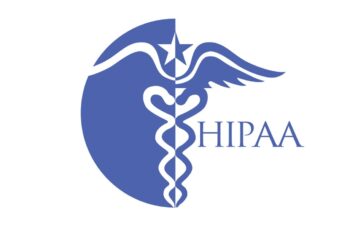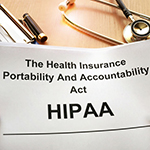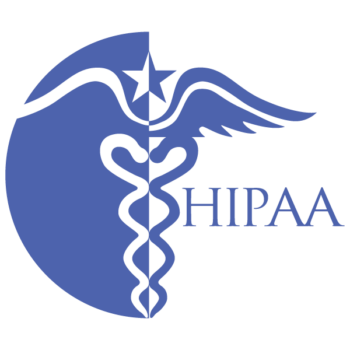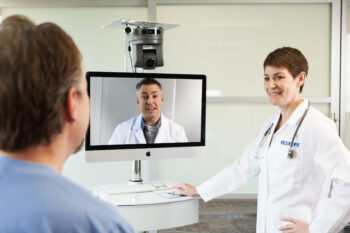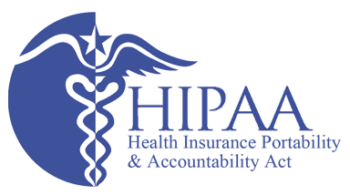In the healthcare industry, protecting patient confidentiality and safeguarding sensitive medical information are paramount responsibilities. As a medical office manager, fostering a robust workplace security culture is essential to ensure compliance with regulations such as HIPAA (Health Insurance Portability and Accountability Act) and to maintain the trust and confidence of … [Read more...] about 5 strategies for safeguarding patient confidentiality
HIPAA
HIPAA compliance checklist
Having a complete HIPAA compliance program is important to your organization. Run through this HIPAA compliance checklist to see if you have your foundation of HIPAA compliance in place and easily retrievable. HIPAA Policies and Procedures HIPAA privacy policies, procedures, and forms HIPAA security policies, procedures, and forms HIPAA Breach Notification policy and … [Read more...] about HIPAA compliance checklist
Why and how to review vendor contracts annually
As a medical office manager, ensuring the smooth operation of your practice involves a multitude of responsibilities. One crucial yet often overlooked task is the annual review of purchasing vendor contracts. This process is vital not only for maintaining cost efficiency but also for ensuring compliance, service quality, and adaptability to changing needs. Here’s why and how to … [Read more...] about Why and how to review vendor contracts annually
AI in medical office management: Leveraging technology for enhanced efficiency
In the ever-evolving landscape of healthcare, medical office managers find themselves at the forefront of integrating innovative technologies to streamline operations, improve patient care, and optimize administrative workflows. Among these advancements, Artificial Intelligence (AI) stands out as a transformative tool that is already playing a significant role in various … [Read more...] about AI in medical office management: Leveraging technology for enhanced efficiency
Model HIPAA Privacy Reminder to Reception and Other Staff
Why you need this memo: Your medical office staff understands the imperative of safeguarding personal health information (PHI) and wouldn't let strangers roam about the facilities freely. But it's easy for them to lower their guard when a former employee comes back to the practice, e.g., to pick up a final paycheck or just make a social call. How this memo helps you: This … [Read more...] about Model HIPAA Privacy Reminder to Reception and Other Staff
Could your organization’s website reveal your HIPAA non-compliance?
By Danika Brinda Did you know that your organization’s website can reveal to the world that you are out of compliance with HIPAA? A quick look at your organization’s website could reveal to a HIPAA auditor that your organization is struggling with HIPAA compliance. Wondering what I am referring to? The Notice of Privacy Practices! The regulations state that your … [Read more...] about Could your organization’s website reveal your HIPAA non-compliance?
Leveraging voice technology for streamlined operations
Voice technology, powered by sophisticated natural language processing and artificial intelligence, has emerged as a powerful tool that can revolutionize the efficiency and productivity of medical office management. Here are some ways in which voice technology can be harnessed to optimize workflow, improve patient interactions, and streamline administrative tasks. 1. … [Read more...] about Leveraging voice technology for streamlined operations
Integrating telemedicine into your practice
The healthcare landscape is evolving, and telemedicine has emerged as a transformative tool for medical practices to expand their reach, improve patient access, and provide high-quality care remotely. Integrating telemedicine services into your practice requires careful planning and execution, considering aspects like technology, staff training, patient communication, and … [Read more...] about Integrating telemedicine into your practice
10 basic steps to comply with HIPAA
HIPAA (the Health Insurance Portability and Accountability Act) is a federal law that protects the privacy of individuals' personal and medical information. HIPAA is important for medical offices because it sets standards for the protection and handling of this sensitive information, which is critical to maintaining the trust of patients and ensuring the confidentiality of … [Read more...] about 10 basic steps to comply with HIPAA
HIPAA compliance quiz for medical office employees
Instructions: This quiz is designed to test your knowledge of HIPAA (Health Insurance Portability and Accountability Act) requirements and regulations. Please select the best answer for each question. Choose only one answer unless otherwise specified. Good luck! Question 1: What does HIPAA stand for? a) Health Insurance Policy and Administration Act b) Health Information … [Read more...] about HIPAA compliance quiz for medical office employees

